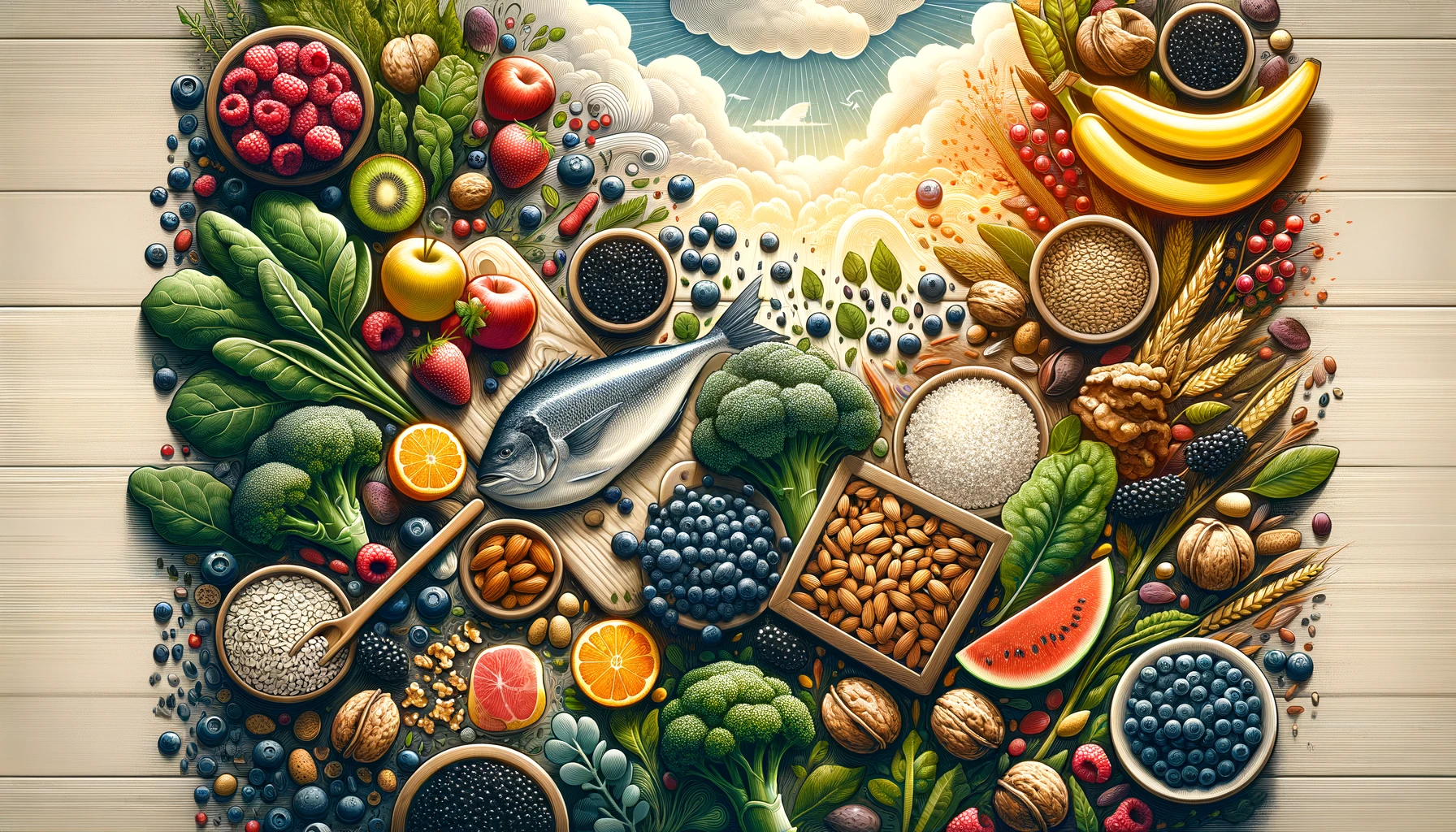In the golden years of life, nutrition plays a starring role in maintaining health, vitality, and happiness. Among the myriad of dietary choices, fruits emerge as nature’s own medicine—packed with vitamins, minerals, fiber, and antioxidants, yet bursting with flavors. This comprehensive guide celebrates the best fruits for Senior people, weaving together nutritional science with a sprinkle of humor and a dash of Ericksonian conversational magic. Let’s embark on a flavorful journey to discover how these natural treasures can enrich the lives of the Senior. Why Fruits? As we age, our bodies undergo subtle yet significant changes. Metabolism slows, digestion may become more challenging, and the risk of chronic diseases increases. Fruits, with their dense nutritional profiles, are perfectly poised to address these issues. They offer a natural source of hydration, essential nutrients to combat and prevent age-related conditions, and the fiber needed for optimal digestive health. But more than that, fruits bring joy and variety to the diet, turning every meal into a celebration of life’s sweetness. A Basket of Nature’s Best Let’s explore the cornucopia of fruits deemed especially beneficial for the Senior, delving into their health benefits and offering tips on how to enjoy them. Apples: The Quintessential Fruit “An apple a day keeps the doctor away” isn’t just a catchy phrase; it encapsulates the apple’s health benefits. Rich in soluble fiber, it aids in digestion and regulates blood sugar levels. The presence of quercetin, an antioxidant, also supports brain health. Apples are incredibly versatile—enjoy them raw, cooked, or as part of savory dishes. Blueberries: Tiny Berries, Massive Benefits Blueberries are celebrated for their high antioxidant levels, particularly beneficial for cognitive health and reducing the risk of heart disease. They’re a perfect addition to breakfast cereals, yogurts, or simply enjoyed fresh. Bananas: The Portable Potassium Powerhouse Bananas are known for their high potassium content, vital for heart health and blood pressure regulation. They’re also rich in vitamin B6 and fiber. Enjoy bananas as a quick snack, in smoothies, or even baked goods for a healthier twist. Oranges: The Burst of Sunshine Rich in vitamin C, oranges support immune function and skin health. They’re also a good source of fiber and antioxidants. Start your day with a fresh orange juice or add orange segments to salads for a tangy twist. Kiwi: The Vitamin C King With its high vitamin C content, kiwi surpasses even oranges in this regard, aiding in immune system support and skin health. It’s also rich in fiber and potassium. Kiwis can be eaten on their own or added to fruit salads for a tropical flair. Papaya: The Digestive Aid Papaya is not only delicious but also contains papain, an enzyme that aids digestion. It’s also a good source of vitamins A and C. Enjoy papaya fresh or blended into smoothies for a digestive health boost. Cherries: The Anti-Inflammatory Champions Cherries are renowned for their anti-inflammatory properties and high antioxidant content, making them beneficial for joint health and reducing the risk of chronic diseases. They’re perfect as a snack or added to desserts for a touch of sweetness. Watermelon: Hydration Hero Watermelon, being over 90% water, is excellent for hydration. It’s also rich in vitamins A and C and lycopene, a powerful antioxidant. Enjoy watermelon slices on a hot day or blend them into refreshing smoothies. Grapes: The Heart Health Helpers Grapes, particularly the darker varieties, are rich in resveratrol, a compound that supports heart health. They’re also a good source of vitamins C and K. Enjoy grapes fresh, or freeze them for a cool treat. Pomegranates: The Antioxidant Powerhouses Pomegranates are one of the most antioxidant-rich fruits, supporting heart health and potentially reducing cancer risk. They can be a bit tricky to eat, but their seeds add a juicy crunch to salads and dishes. Strawberries: The Heart-Healthy Berries Strawberries are not only delicious but also rich in antioxidants and vitamin C, supporting heart health and providing skin benefits. They’re perfect eaten fresh, in salads, or blended into smoothies. Incorporating Fruits into the Senior Diet Incorporating fruits into the diet can be as simple as adding them to breakfast cereals, blending them into smoothies, or enjoying them as snacks. For those with a sweet tooth, fruits offer a natural alternative to sugary treats, satisfying cravings while boosting health. The Joy of Fruits: Beyond Nutrition Fruits are not just about nutrition; they’re about enjoyment, exploration, and the simple pleasures of taste. They remind us to savor life’s flavors, to celebrate the diversity of nature’s bounty, and to embrace each day with a zest for life. Conclusion: A Fruitful Path to Aging Gracefully Embracing fruits in the diet is a delicious and joyful way to support health and well-being in the golden years. By choosing a variety of fruits, the Senior can enjoy the full spectrum of flavors and health benefits these natural wonders offer. So, let’s raise a glass (or a fruit salad bowl) to a life enriched by the vibrant, healthful, and joyful essence of fruits. Here’s to aging gracefully, one bite at a time! At TheFitnessHelpDesk.com, we specialize in providing top-notch fitness training and nutritional advice tailored for seniors. Reach out to us now to learn how balanced nutrition significantly contributes to improving the well-being of the Senior.









